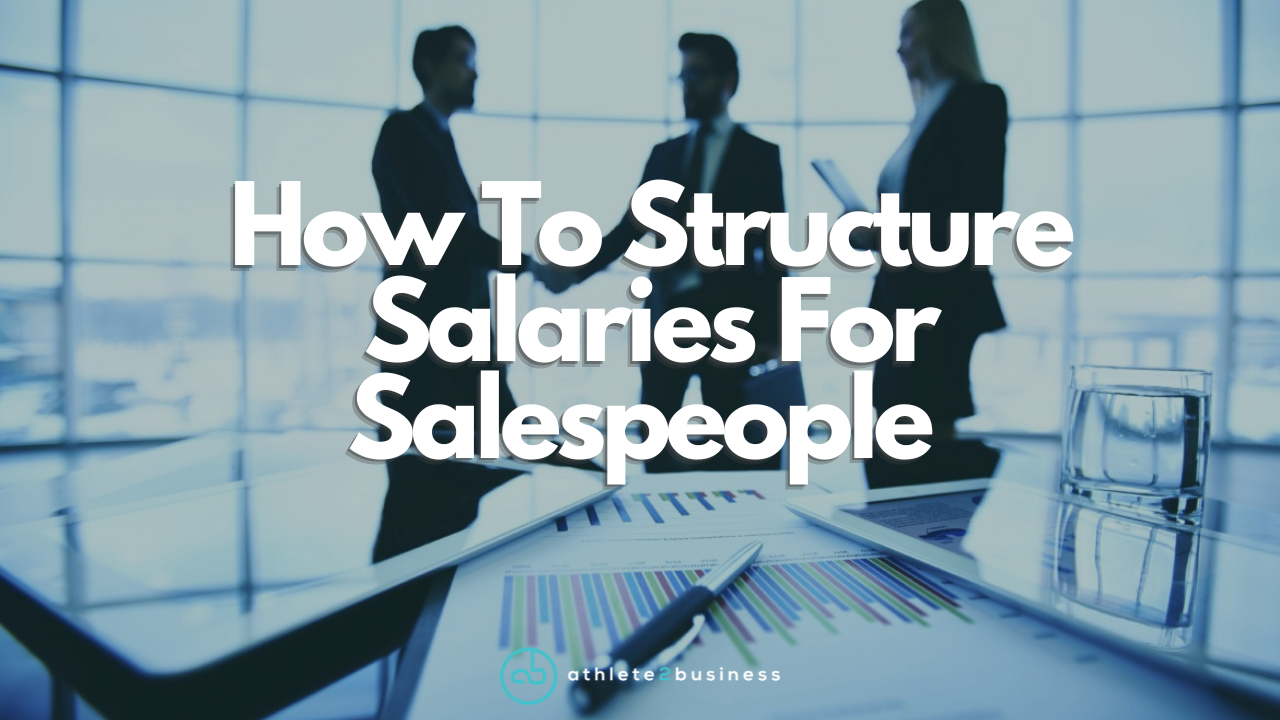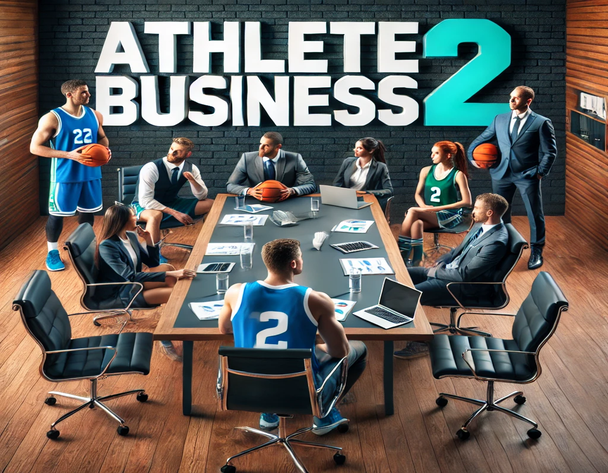Interview prep
Interview prep

The general conception of job interviews is that they’re daunting, nerve-racking and stressful. Even if you’ve been on numerous interviews before, you’re still meeting new people, selling yourself and your skills and you need to stay up-beat and enthusiastic through it all. Not every interviewer is the same so strategies that worked for one employer might not work for another, hence all the reason more why job interviews are considered stressful.
However, there are definitely ways to make job interviews less stressful and give yourself the best chance to
succeed. A little preparation can go a long way in making you feel more comfortable and confident. Below are some general strategies & tips designed for retired athletes on how to successfully ace an interview:
Highly Important: Have an understanding of what you’ve done so far and how the skills you’ve picked up are transferable to business. Be absolutely clear of mind about what you’re doing next and what your career goals are. If you’re like most athletes you probably have no idea what’s next. However, you still need to craft a clear and concise career goal & path and talk about what drives & motivate you now, as employers are looking for confident & assertive individuals.
- Dress Appropriately: Suit and tie, suit and tie, suit and tie and suit and tie. Always overdress for a job interview – wear a suit and tie, be groomed and well presented (ladies – of course, business professional outfit). I don’t care if you’re going for a plumber job, cashier, forklift driver or sky diving instructor, fellas always wear a suit and tie and ladies business professional outfit. First impressions count and if you’re in a suit you can’t impress any better then that!
- Research the company and the interviewer: It’s highly important you learn as much as possible about the company and the person interviewing you. It shows you care, you know how to research and you’re well prepared. Don’t only go through the company’s website, google them and find most recent & relevant articles. As far as the interviewer, look them up on LinkedIn and get familiar with their path to management & leadership.
- Know the job & job description inside-out: This one seems like common sense, but you’ll be surprised by how many people don’t know how to articulate a particular job and what’s required of them. Of course, read the job description and know what your duties will be but also google the job and find out more information on it. For example if you’re going for a recruitment job, google “day to day activities of a recruiter,” and learn what they do on a daily basis. Learn what’s hard and challenging about it and best practices to overcome such challenges. If you’re going for a sales job, find out what are the best ways to find & win new clients.
- Be ready for some of the most commonly asked questions and remember that your answers should emphasize the skills that are most important to the employer and relevant to the position. Also, when answering questions, always use specific examples that highlight your skills:
- Tell me a little about yourself? They’re just trying to find something out about you that’s not on your resume. Be generic and don’t give too much information about your personal life. Focus on community work you might have done, mentorship programs, something you're passionate about outside of your most common profession but then tie it back professionally and how it relates to the position. For example: “When I’m not working, I love to spend a lot of time with my 2 year old daughter, take her to the park, play dates with other kids and watch movies with her. To me it’s fascinating how in the moment and curious she always is, as adults I think we lose that sense of “being in the present and curiosity.” Being with her has helped me grasp that again and it’s helped me perform better on the field as I’m always focused on the task at hand and if there’s something I don’t understand I’m not afraid to ask and research for answers".
- Tell me a little about your experience? This question will most likely stem from the above question. Sometimes, they’ll just expect you to go straight into your professional experience after telling them a little about your self without asking, just read the situation and act accordingly. Make sure you go over exactly what’s on your resume and highlight the accomplishments & lessons that are relevant to the employer and job position. For example, if you’re a recently retired athlete going for a B2B sales job: “I’ve been a professional rugby player for the past 8 years, playing at the highest levels in Australia, France, England and Japan. During this experience, I’ve developed relationships with many people across different personalities, behaviors and cultural backgrounds. I was able to forge strong relationships due to my ability to adjust to various different personalities and empathize with a variety of different people. I believe this same skill is essential to succeed in sales – you need to be able to forge relationship with different decision makers.”
- Why do you want to work in sales? With this question, always tie it back to how the current role you’re going for has elements you’re passionate about from sport. Pick 1 or 2 things you would enjoy, that would challenge and fulfill you and expand on that. For example: “Due to playing pro sports I’ve developed a highly competitive spirit. I’m always chasing wins and goals. Now that I’m retired, I believe sales will fill that void – winning deals and chasing targets, I need that adrenaline rush again. Also, I’m a people person, I love meeting and interacting with people.”
- What do you know about our company? This goes back to point 2. Make sure you research the company and don’t be afraid to have some dot points written down on a note pad which you can take with you to the interview and use as a reference. Make sure you’re only using your notes as reminders or reference and keep eye contact with the interviewer as much as possible.
- Why are you leaving your current job? Don’t forget the delivery of this answer is just as important as its content (this goes for all the answers), so make sure you practice out loud and tailor your answer to your situation. Avoid bad mouthing your previous employer and avoid using phrases like “more money,” “seeing what’s out there,” and “my boss was bad.” If your an ex-athlete with a few years business experience, focus on “I’m seeking bigger opportunities to grow my career and achieve my professional & personal goals.”
- What are your strengths? Remember, the main reason employers ask this questions is to find out if your skills meet their needs for the company and job requirements. Hence, why it’s highly important you research the company and know exactly what’s required on the job. For example, if the job description requires someone who is a “hunter” and “not afraid to pick up the phone”, highlight this as your strength and give a specific example on how you’ve done that in your previous job. If you’re a recently retired athlete, focus on your proactive (go getter) attitude and ability to speak in front of large groups, that is the equivalent of a hunter and someone who’s not afraid to pick up the phone.
- What are your weaknesses? Best way to answer this is to mention a skill you’re lacking, that is not an essential skill needed to be successful in that particular job, but then come up with a way you are turning it into a positive or something you’re currently doing to better yourself in that area. For example, if you’re going for a sales job: “My administrative skills in areas such as Microsoft Excel and Powerpoint are not the best, however I am currently taking weekend classes to get better.” Avoid stating a weakness that is a key skill in being successful in the job, for example if you’re going for a sales job, never say “I’m not comfortable in talking to people or I don’t feel comfortable presenting to a large group of people.”
- How will your skills and experience transfer to the job? There is a variety of ways you can answer this questions. The best way is to know the job description and tailor your answer to that. As an athlete, you’ve built a variety of skills that will transfer perfectly into business: Example 1, example 2, and example 3 all have great insights which you can use to answer this questions.
- Give me an example of something that challenged you in your previous experience and how you overcame it? Similarly to talking about your weaknesses, come up with something that you found challenging and how you overcame it. Study the job description and find something you think would actually challenge you and give the employer that specific example. For example, if the job description states “must be able to build relationships with high level CEOs. Give an example of how you were forced to mingle with various business owners (sponsors) at your team’s networking events. You initially found it daunting but prior to the event did some research on best ways to act & mingle at business networking events, implemented your studies and made quite an impression on the sponsors. How do you know you did? Your coach received some great feedback on your communication skills and likability.
- Other questions to be ready for: How do you handle failure? How do you handle success? How does this job fit with your career plan? How would your peers describe you? What motivates you? What are you passionate about? What sets you apart from other candidates? Why should we hire you? Describe a time when you had a heavy workload and how you handled it?
5. Have 3 predetermined answers ready to go: Like a politician, if you ever get stuck on a question, have some extremely generic answers ready to go to bail you out of a tough situation. Remember, use your common sense about when you can use these and how. Be savvy enough to slightly adjust the answer to the question. As a retired athlete, here are the best 3 answers to have ready to go – 1. I’ve been a professional rugby player for the past 8 years, playing at the highest levels in Australia, France, England and Japan. During this experience, I’ve developed relationships with many people across different personalities, behaviors and cultural backgrounds. I was able to forge strong relationships due to my ability to adjust to various different personalities and empathize with a variety of different people. I believe this same skill is essential to succeed in sales – you need to be able to forge relationship with different decision makers. 2. What’s enabled me to become a professional athlete and succeed at the highest level is my dedication to hard work, time management skills, competitive nature, resilience and mostly my drive and hunger to succeed. I believe it’s those same principles that will enable me to succeed in business. 3. Sticking to a process and having good daily habits is key to success. For example, I would train at the gym on Monday, Wednesday and Friday mornings. On-field training is on Monday and Thursday arvos. Physio and message is Friday arvos. Doctor & dietitian visit is Mondays. I would also break down each training session so I know exactly what I’m doing and how. Even my rest days have a process I followed. I found by following a set process and putting tailored good habits in place it enabled me to generate positive outcomes. Within the first 3 months of this role, I would work out the best process to follow & habits to put in place to produce best results
6. Have some questions ready to go: Towards the end of the interview, the interviewer will ask you if you have some questions for them. You should 100% have some questions. It shows you care and also that you are prepared. Again, there’s nothing wrong with bringing a notepad with you with some of these questions written down. Some questions to ask are:
- Would I be part of a team and if so how many people on my team?
- What are some attributes or habits of your most successful employee?
- For those that are not performing as well, why is that? And how do you help them get back on track?
- Where do you see the company in 5 years time? What are some goals you have for the business in 3, 5 and 10 years?
Remember, the person interviewing you is just as nervous as you are. They are hoping you do well as much as you are hoping you do well. They want to find any reason to hire you. Hiring is a tough process, the longer they take to fill the position the more money they are losing and the more pressure they have to find someone ASAP! Another thing to remember, they’re hoping you like them and the company as much as you’re hoping they like you. You are also interviewing them because their business values and culture needs to align with your values and wants. So, relax and breath because the person interviewing you is probably more nervous and has more pressure on them.
Bonus Tip: After the interview, send a follow up email to the interviewer thanking them for their time and how excited you are of the potential of working with them.
News





